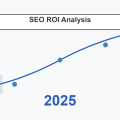To go right to the point, PHP is a great tool for SEO only if you set it up right.
Having worked on hundreds of WordPress sites, I will be sharing just what you need to do to maximize your PHP site for search engines in 2024.
Key Initial Steps
Let’s start with your base so you may then explore intricate optimizations. Every PHP site must start with these really vital first steps:
Deciding on the Correct Hosting Agent
Your hosting choice affects your site speed, uptime, and security. Look for:
- Your site speed, uptime, and security depend on the hosting you use. See:
- Dependable uptime (99.9%)
- Quick reply times from servers
- Frequent backups
- Good security elements
- Excellent technical support
Standard PowerShell Settings for WordPress
First, fix these often-overlooked settings:
- Under Settings > Reading, go to
- Make sure “Discourage search engines” is unchecked.
- Under Settings > Permalinks, go to
- Use a “Post name” framework.
- Proceed to Settings > In general
- Set accurate site title and tagline
- Make sure the timezone is accurate.
Basic plugins for SEO in WordPress
Although you won’t need hundreds of plugins, several are really vital:
SEO Plugin
Choose one of these:
- Rank Math (my current preference)
- Yoast SEO
- All in One SEO
Don’t install multiple SEO plugins – choose one and stick with it.
Performance Plugins
Essential for speed:
- Caching plugin (WP Rocket or LiteSpeed Cache)
- Image optimization plugin
- Minification tool
Technical Optimization
Speed Optimization
Site speed is vital for users as well as for search engines:
Image Enhancement
- Compress all images before uploading
- Use appropriate image sizes
- Implement lazy loading
- Consider WebP format
Caching Setup
- Enable page caching
- Browser caching
- Database optimization
- Minify CSS/JS files
Fundamental Web Vitals Focus on:
- Largest Contentful Paint (LCP)
- First Input Delay (FID)
- Cumulative Layout Shift (CLS)
Mobile Enhancement
With mobile-first indexing, ensure:
- Responsive design
- Touch-friendly elements
- Fast mobile loading
- Clear mobile navigation
Content Structure
URL Structure
Create clean, logical URLs:
- Use categories wisely
- Keep URLs short
- Include target keywords
- Avoid special characters
Internal Linking
Build a solid structure:
- Link related content
- Use descriptive anchor text
- Create content clusters
- Maintain link hierarchy
Content Arrangement
Implement:
- Clear categories
- Relevant tags
- Logical menus
- Breadcrumb navigation
On-Page SEO Components
Title Marks
For every page and post:
- Include target keyword
- Keep under 60 characters
- Make it compelling
- Be descriptive
Meta Keyword Descriptions
Create unique descriptions:
- Include key benefits
- Call to action
- 150-160 characters
- Natural language
Header Tags
Proper hierarchy:
- One H1 per page
- Logical H2-H6 use
- Include keywords naturally
- Structure content clearly
Content Building
Quality Content Guidelines
Focus on:
- User intent
- Comprehensive coverage
- Clear structure
- Regular updates
WordPress Editor Tips
Make the most of Gutenberg:
- Use blocks effectively
- Create reusable blocks
- Optimize for readability
- Include multimedia
Image Optimization
Image optimal procedures
Before uploading:
- Descriptive file names
- Proper sizing
- Image compression
- Format selection
Alt Text
For every image:
- Descriptive text
- Include keywords naturally
- Explain image content
- Be specific
Advanced WordPress SEO
Mark-up schema
Implement:
- Organization schema
- Article schema
- Product schema (if applicable)
- Local business schema
XML Sitemap
Ensure proper setup:
- Include important pages
- Exclude unnecessary content
- Regular updates
- Submit to search consoles
Maintenance and Security
Consistent Maintenance
Schedule:
- Weekly updates
- Monthly backups
- Quarterly audits
- Annual reviews
Safety Strategies
Implement:
- Strong passwords
- Security plugin
- Regular updates
- Backup system
Performance Track-of- Reference
Analytics Setup
Configure:
- Google Analytics
- Search Console
- Site monitoring
- Error tracking
Regular Checks
Monitor:
- Core Web Vitals
- Mobile usability
- Crawl errors
- Site speed
Local SEO for WordPress
Local Optimization
If suitable:
- Location pages
- Area-specific content
- Local schema
- Address consistency
Maps Integration
Include:
- Embedded maps
- Directions
- Service areas
- Location details
E-commerce SEO (should it be necessary)
WooCommerce Optimization
Focus on:
- Product descriptions
- Category optimization
- Review systems
- Product schema
Shopping maximization
Implement:
- Rich snippets
- Price markup
- Availability status
- Product variants
The incorporation for Social Media
Social Transmission
Set up:
- Share buttons
- Open Graph tags
- Twitter cards
- Social schema
Social Profiles
Link to:
- Business profiles
- Social feeds
- Review platforms
- Industry networks
Ongoing Optimization
Frequent Reports
Maintain:
- Fresh content
- Updated plugins
- Current themes
- Latest WordPress version
The schedule for content
Plan:
- Regular posts
- Content updates
- Seasonal content
- News coverage
Typical HTML SEO Errors with WordPress
Steer Clear of These Problems
Watch out for:
- Multiple SEO plugins
- Duplicate content
- Broken links
- Poor hosting
Best Practices
Always:
- Monitor performance
- Check mobile display
- Update regularly
- Backup frequently
Future-Proofing
Stay Current
Keep up with:
- WordPress updates
- SEO trends
- Google guidelines
- Industry changes
Prepare for Changes
Be ready for:
- Algorithm updates
- Technology changes
- User behavior shifts
- New features
Final Recommendations
Focus on these priorities:
- Technical foundation
- Quality content
- User experience
- Regular maintenance
Remember:
- SEO is ongoing
- Monitor results
- Adjust strategies
- Stay updated
With appropriate upkeep and optimization, your WordPress site can rank really nicely. Emphasize these foundations, be consistent in your work, and routinely update your website to follow SEO best standards.
The secret is laying a firm basis and keeping it intact across time. Start with the basics and progressively enhance the SEO of your website as you grow more at ease using these methods instead of trying everything at once.
Success with PHP SEO results from regular work and meticulous attention to detail. Maintaining technological perfection, keep concentrating on giving your users value; your rankings will show your efforts.
Please contact me for a free quote right now if you would want to discuss your WordPress SEO.








